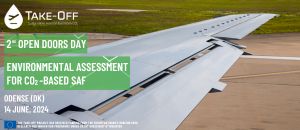Fourteen partners from seven European countries are working on this project, which is coordinated by Fundación CIDETEC with the aim of favouring a sustainable, circular bioeconomy focused on the creation of new value chains of byproducts such as poultry feathers, which are usually discarded or underused, as a means of developing rural areas and expanding their economies.
The main goal of this project is to design and demonstrate an economically and environmentally sustainable supply chain for a feather-based bioeconomy with the aim of generating bio-based functional materials for agricultural applications. UNLOCK proposes manufacturing bioplastics and biotextiles from feather keratin, which have properties that can give the final product new functionalities, such as a biodegradation capacity adjusted to crop duration, providing the soil with organic nitrogen, not generating waste at the end of their life cycle and being cost competitive.
With the assistance of Terra Aquatica, AIMPLAS is responsible for the development and validation of one of the project products: foams for hydroponic crop systems. Hydroponics is a practice that allows vegetables to be grown directly in contact with a nutrient solution in an environment without soil. Polyurethane foams are currently the most popular solution for this kind of application due to their low density, low cost, and good water retention. However, this material can contain harmful chemicals, is difficult to sterilize, and is a major source of microplastics.
Three solutions for different applications in hydroponic crops
To improve the environmental impact and product life cycle, AIMPLAS is working on solutions for three different hydroponic crop accessories: cloning collars, oasis root cubes and minidisks, an alternative substrate format similar to perlite.
These foams are made from a combination of a bioplastic matrix, a foaming agent and feathers treated by other partners in the consortium to extract their keratin.
The other R&D organizations besides AIMPLAS that collaborate on this project are Fundación CIDETEC (Spain), which is also the project coordinator, ŁUKASIEWICZ Research Network, Institute of Biopolymers and Chemical Fibres, and RISE Processum AB. In addition, seven SMEs from different countries are also taking part, including General Hydroponic Europe, Bioextrax AB, Bio-Mi društvo sa ograničenom odgovornoču, TECNOPackaging, FARRELLY & MITCHELL, Organic Waste Systems nv, and ACUDAM, the Associació Comarcal Urgell d’Ajuda al Minusvàlid. Two clusters are also involved in the consortium, Fundacja UNIMOS and Greenovate! Europe EEIG. Finally, also involved is CEDROB SA, a large company.
Source
Aimplas, press release, 2023-10-11.
Supplier
AIMPLAS (Asociación de Investigación de Materiales Plásticos y Conexas)
European Union
Fundación CIDETEC
Terra Aquatica
Share
Renewable Carbon News – Daily Newsletter
Subscribe to our daily email newsletter – the world's leading newsletter on renewable materials and chemicals










